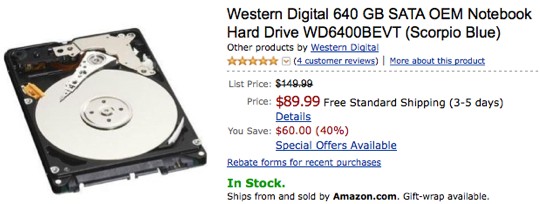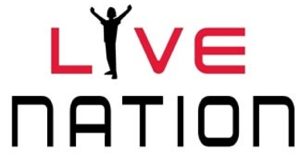Apple launches Cyber-Monday accessories sale, free shipping
Apple has launched a special one day-only sale on accessories for Mac, iPod and iPhone, available now online in the US and UK (and likely in other territories.
The sale is tagged, “Finally, a reason to love Monday. get special savings on select Mac, iPod, and iPhone accessories.” The store also notes these sale day products to be, “brand new and available only from Apple.”
Various products are available inside this promotion, including Monster Beats headphones for $269.95, rather than $299.95, and, in the UK, Vuzix Wrap 920 Video Glasses (£249.95).
Despite Apple’s claim to exclusivity on some of the accessories it has for sale, some products do appear to be available at Amazon, so it is worth checking if you have shopping plans.
For example, the Vuzix AV920 Video Glasses are available from Amazon in the UK, for £195. And various models of Monster Beat headphones also appear to be available for sale on Amazon US.
Also marking Cyber Monday, Apple has activated free shipping on any products purchased through its online store in the US, UK, France, Germany and Austria. There’s no free shipping in some key territories, for example Italy, Spain, Canada or New Zealand. However, local Italian reports claim this free shipping is available in that country.
Intel’s Six-Core 'Gulftown' processor revealed, possibly headed to Mac Pro
Performance numbers of Intel’s new six-core Xeon were prematurely revealed by Polish website PCLab, showing strong increases in performance for the chip rumored to be in the next iteration of the Mac Pro.
Hardmac reported that test and performance results of Intel’s new 6-core Xeon chips code-named "Gulftown" were briefly featured on PCLab before being taken down at the request of Intel. According to the test results, the new chips are nearly 50% faster than the previous quad-core Xenon during parallel tasks, and use up to 50% less power.
This chip will, according to sources, be featured in future Mac Pro models that could arrive as early as the first quarter of 2010. The "Gulftown" chip will be sold under the Core i9 name and will be Intel’s first six-core, dual-socket processor. The 32 nanometer chips feature 12MB of L3 cache. If paired with another chip, as Apple usually does in its high-end workstations, the processors will offer 12 physical and 24 logical cores.
In a previous story, Hardmac reported that the new Mac Pro will have a modified motherboard with a 10Gbit/second Ethernet port and will support 8GB and 16GB RAM modules, allowing for a maximum of 128GB of RAM. The report also stated that it is likely that Apple would have short-term exclusive use of the i9 processor. Apple has enjoyed short-term exclusivity during the release of the previous two Mac Pro lines.
Apple posts tools for building TuneKit iTunes LPs and Extras
Apple has taken iTunes LP and Extras public, encouraging independent developers to begin work on interactive digital content for distribution in iTunes starting early next year. The new move signals a big move in taking on Adobe Flash, pushing the adoption of web standards, and creating an new business model for content that could impact how the company’s forthcoming tablet is sold and used.
7 Hot Black Friday Laptop and Netbook Deals
Are you in the market for a laptop or netbook this holiday season? Then check out the hot deals below. If you can’t get enough laptop information, then you should also check out 2009 Holiday Laptop Gift Guide to see which computers promise to be on everyone’s wish list this year.
Western Digital 640GB Laptop Hard Drive: $90
Amazon.com offers the Western Digital Scorpio Blue 2.5" 640GB Serial ATA Internal Notebook Hard Drive, model no. WD6400BEVT, for $89.99 with free shipping ($0.14/GB). That’s a $30 drop since our October mention and the lowest total price we’ve seen. This laptop hard drive runs at 5400 rpm and features an 8MB cache.

Microsoft issues security advisory on IE vulnerability
Microsoft Monday night issued a security advisory that provides customers with guidance and workarounds for dealing with a zero-day exploit aimed at Internet Explorer.
Earlier in the day, the company said it was investigating the incident which emerged over the weekend when someone published the exploit code to the Bugtraq mailing list. By Monday night, Microsoft switched gears and issued the advisory. There have not been any active exploits of the vulnerability reported so far.
Microsoft released Security Advisory 977981, which includes workarounds for an issue that exposes a flaw in Cascading Style Sheets that could allow for remote code execution. Vulnerabilities that allow remote-code execution generally result in patches rated as critical by Microsoft.
The advisory confirmed the vulnerability affects IE 6 on Windows 2000 Service Pack 4, and IE 6 and IE 7 on supported editions of XP, Vista, Windows Server 2003 and Windows Server 2008. Microsoft’s said users running IE 7 on Vista can configure the browser to run in Protected Mode to limit the impact of the vulnerability. It also recommended setting the Internet zone security setting to “High” to protect against the exploit. The “High” setting will disable JavaScript, which currently is the only confirmed attack mode.
Microsoft said IE 5.01 Service Pack 4 and IE 8 on all supported versions of Windows are not affected.
For an attack to work, the hacker would first have to get his victim to visit a Web site that hosted the exploit code. This could be a malicious Web site set up by the hacker himself or it could be a site that allows users to upload content.
Another way cyber criminals have launched this type of attack, however, is by hacking into legitimate Web sites. Earlier this week, for example citizen’s band radio vendor Cobra Electronics disclosed that it had been hacked in June, most likely by a professional hacker who had used the site to download malware to customers.
Microsoft did not say whether it would patch the flaw during its next regularly scheduled set of security updates, due Dec. 8.
Live Nation and iTunes launch exclusive live music program

iTunes continues to move toward presenting us with immediate musical experiences, this morning announcing a deal with Live Nation under which live gig recordings from venues across the USA will be offered exclusively for sale through the Apple music service.
Distorted Loop reports the scheme will see Live Nation Studios offering exclusive recorded and filmed concerts from its network of "wired" venues for purchase and download only on iTunes.
Exclusive live recordings from OK Go, Jesse McCartney, Saving Abel, A Fine Frenzy, Duffy, Plain White T’s and Ziggy Marley, have been released this week, with many more to follow.
"We are thrilled to offer artists a new high-quality platform to share the magic of their live shows with their fans," said Michael Rapino, President and Chief Executive Officer of Live Nation.
Live Nation, through its Studios division, regularly records concerts in more than 80 of its venues, which have been transformed into next-generation "wired" live recording studios, and will now offer a variety of them for purchase and download exclusively on iTunes.
To coincide with the program’s launch, iTunes has added a new area dedicated exclusively to live recordings, the report adds (link leads to sample recording).
Google outlines Chrome OS plans for netbooks
Google hosted a technical introduction to its new Chrome OS today, which it expects to officially launch on new netbooks by the end of 2010.
64-bits of protection?
Microsoft claims that the 64-bit version of Windows 7 is actually safer than ordinary Windows 7. They actually have a point. Sort of.
Joe Faulhaber of the Microsoft Malware Protection Center has made the interesting claim that 64-bit Windows 7 is actually safer than ordinary, 32-bit Windows. He’s right. "64-bit Windows [does] has some of the lowest reported malware infection rates in the first half of 2009." But, that’s not the whole story.
Why? As Faulhaber explains, "Computer viruses are very confused by 64-bit. Taking a look at 64-bit executable code detected by Microsoft anti-malware technologies in the past month, the vast majority is innocent 64-bit files infected by 32-bit viruses. While a 32-bit virus can only see other 32-bit processes, it unfortunately can see the file system, and can tamper with files it finds there."
That’s the good news. The bad news is that this works only because malware makers haven’t been targeting 64-bit Windows. 64-bit Windows XP and Vista both had stability problems and good old regular 32-bit software often had problems running on it. Because of this few people ran either one.
Indeed, 64-bit Windows includes, as Faulhaber points out, WOW64 (Windows On Windows) 64, which lets 64-bit Windows run 32-bit applications. Windows 7 Professional and Ultimate also include Windows XP Mode, which allows you to run a virtual 32-bit copy of Windows XP on Windows 7 for older applications.
64-bit Windows 7, however, is better than either of its older 64-bit siblings. As time goes on though more and more users are moving to 64-bit Windows and applications are being ported to 64-bit Windows for them. The virus makers will soon follow them.
Today, when most people running Windows are still using 32-bit versions, malware creators are continuing to focus on it. As 64-bit version of Windows gets more popular its 'immunity' will decline.
You see what Microsoft is talking about here isn’t really security. It’s 'security by obscurity.' Essentially, all this means is that few people have busted into 64-bits Windows because no one has bothered to break into it. There’s no real security here.
People like to claim that this is also the case with Linux or Mac OS X. They’re wrong. Those systems actually are more secure than Windows. Relying on 64-bit Windows for added security is like driving in a car with a good safety record but that haven’t been on the roads for that long. You may be safer for the moment, but, eventually, chances are you will have an accident.
So, if you’re going to keep using Windows, 32 or 64-bit, you’ll still need to good anti-viral protection. 64-bit Windows, by itself, is no protection.